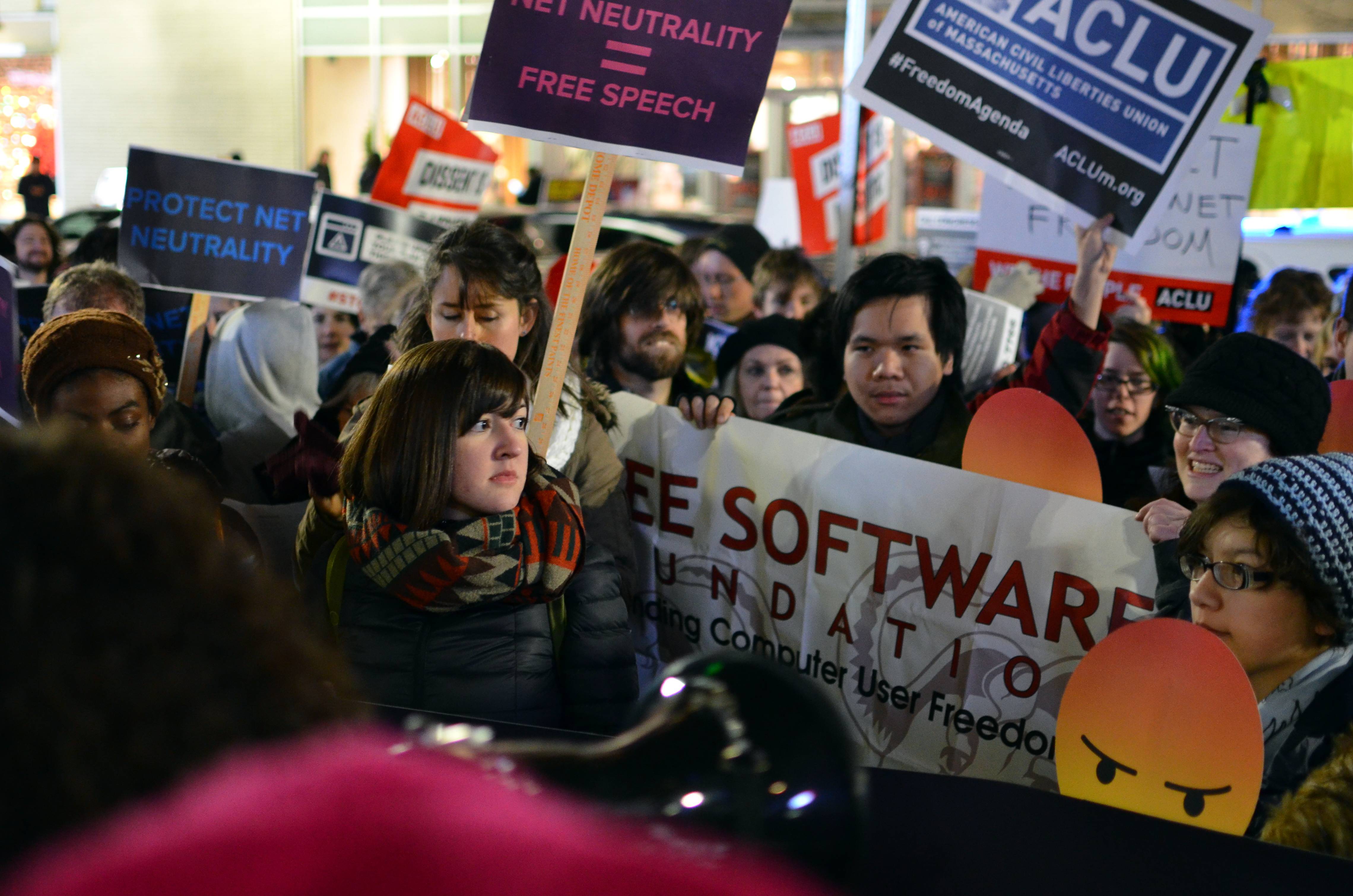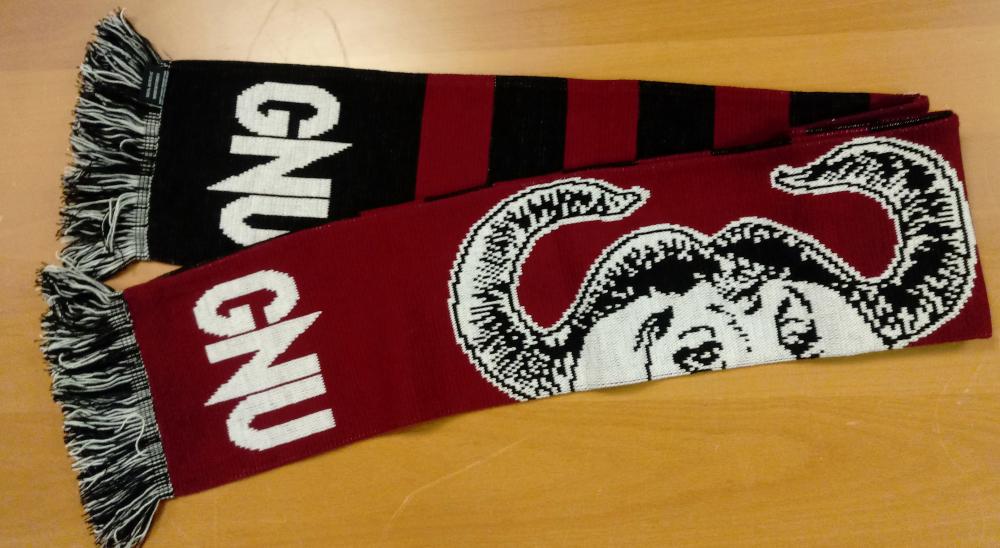Help the FSF share free software licenses with the world
mercredi 13 décembre 2017 à 19:38As software permeates more and more aspects of society, the Free Software Foundation (FSF) must expand our work to protect and extend computer user freedom. We launched our annual fundraiser with the goal of welcoming 700 new Associate Members and raising $450,000 before December 31st. Please support the work at the root of the free software movement: make a donation or –- better yet –- join us and become a member today.
In 2017, we celebrated the 10th anniversary of the GNU General Public License (GPL) version 3. A lot has changed in the world of free software in the last decade. Thousands of software packages have been released, court cases affecting the interpretation of licenses have come and gone, and new threats to software freedom have risen and fallen. More importantly, technology has transformed the way we live, taking the importance of free software far beyond the established tech world: computing has gone mobile via smartphones, and the Internet has infiltrated every aspect of daily life.
Through it all, the FSF's licensing team was there to help people to understand these changes and how they affect users. From our work answering licensing questions from the public, to managing certification programs like Respects Your Freedom, to handling license compliance for the GNU Project, to providing resources like our list of free software licenses, we were there to lend a guiding hand. But if we want to continue this work, and do an even better job in 2018, we need your help. We want to share a bit about the work that we do on the licensing team, and let you know why it is so vital that this work continues.
Helping users understand licensing
Working with a team of volunteers, we answered almost 600 licensing questions from the public in 2017. These can range from the very simple (“Can I sell free software?” Answer: yes, you can!), to the more involved task of choosing the right license for a project. One such request resulted in our helping the Defense Digital Service set up a system for regularly releasing free software, which kicked off with eMCM, released under the GNU Affero GPL version 3 license. Helping governments, other organizations, and individuals to understand free licenses so that they can distribute their software in a way that respects user freedom is one of the most rewarding benefits of having an open channel for answering licensing questions.
Others write to us trying to understand the licenses of existing projects, whether they're established GNU licenses or licenses created by other organizations. While we maintain a list of licenses and our thoughts on them, some projects still choose to draft new licenses. Even for licenses on which we've publicly commented, there can be questions about what they mean, or how they can interact with one another. These situations can be confusing if you are trying to sort them out all on your own. We are here to guide you.
We also provide context and background for the flood of news happening daily in the world of free software licensing. If a topic is particularly important, like an interesting GPL compliance case or a pressing licensing issue, we often end up publishing an article on it.
Our team is always ready to answer these and other questions from users all around the world. Providing users with a direct line lets us share the gift of free software licensing on a personal level. But our team is small, and we're trying to serve millions of free software users across the globe. This means that we need to create and maintain informational Web sites and other resources and reference materials that are easy to find and to use.
Helping users find free software
The licensing team maintains the Free Software Directory, a massive listing of almost 16,000 freely licensed packages. This a resource for users to find free software, and helps maintainers of free software packages discover potential licensing issues with their code. We work with volunteers every Friday via IRC to review free software package licenses for inclusion in the Directory. If there's an issue, we file a bug with the project about the licensing problem. The Directory is a wiki that anyone can edit, and we welcome more volunteers.
Helping users find free distros
In addition to individual packages, users need to know that their systems as a whole are free. Through our List of Free GNU/Linux distributions, users can find a complete operating system that contains and recommends only free software. We work with maintainers, helping them remove nonfree software, and we point out other potential issues with the distro. For many users, running a fully free distro is the easiest way to ensure that they have complete control over their own computing.
Helping users find freedom-respecting devices
Once a user has selected a fully free operating system, they'll need hardware on which to run it. For general hardware needs, users can turn to h-node, a volunteer-run project from the FSF. Being able to purchase hardware that only comes with free software takes more effort, which is where our Respects Your Freedom certification program comes in. In 2017 we certified 18 devices, with 15 from Technoethical and 3 from Vikings GmbH
Helping everyone ethically share free software
When all of these educational resources aren't enough, and someone fails to provide the rights guaranteed under a free license like the GPL, FSF staff take special care to teach them how to come back into our community. Where necessary, we uphold free software by enforcing the license according to the Principles of Community-Oriented GPL Enforcement, which we co-developed with the Software Freedom Conservancy. With a little guided instruction, we help these distributors come back into compliance.
Help us share even more!
The licensing team shares its expertise with users all around the world. From answering questions directly from the public, to publishing articles on current events in software licensing, to providing materials on free software and the hardware it runs on, our work helps users to share their own work as well. But to continue this work, and do even more in the year to come, we need your support. Can you help us to share the power of free licenses with users everywhere?

